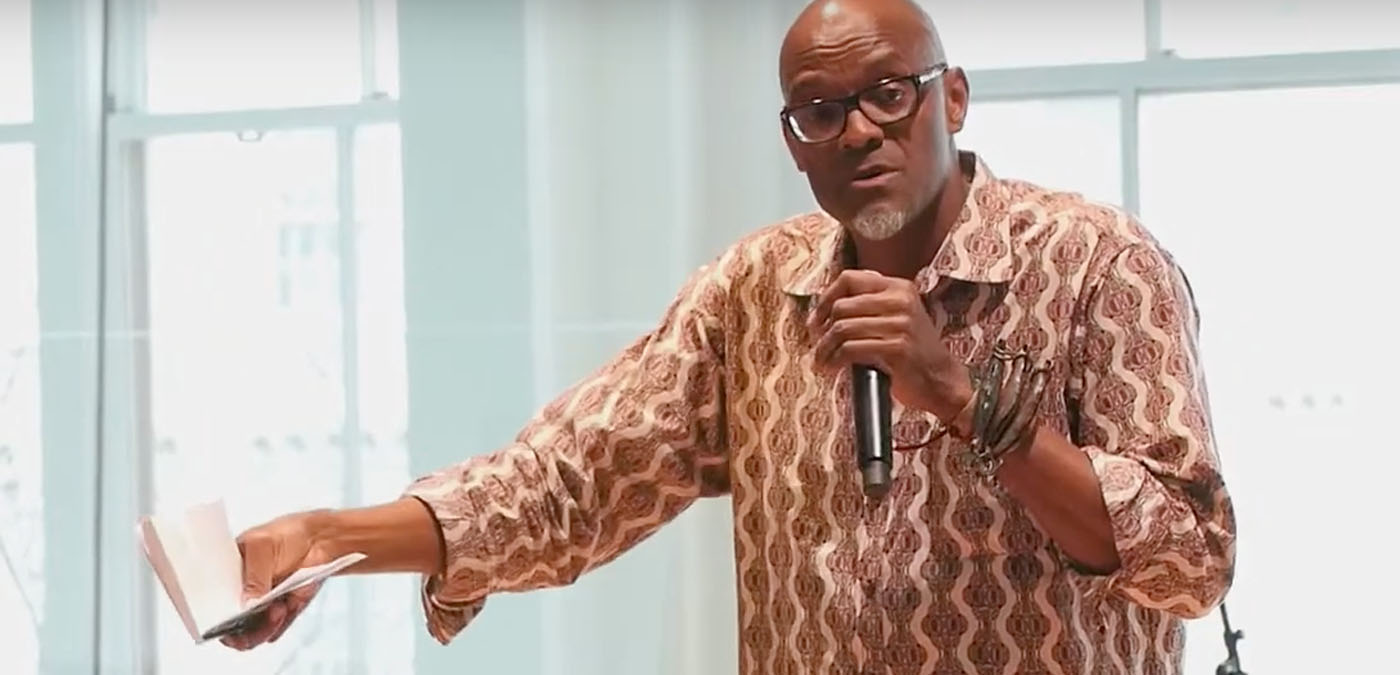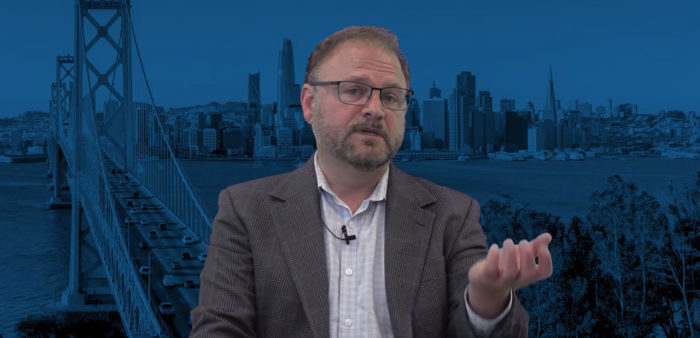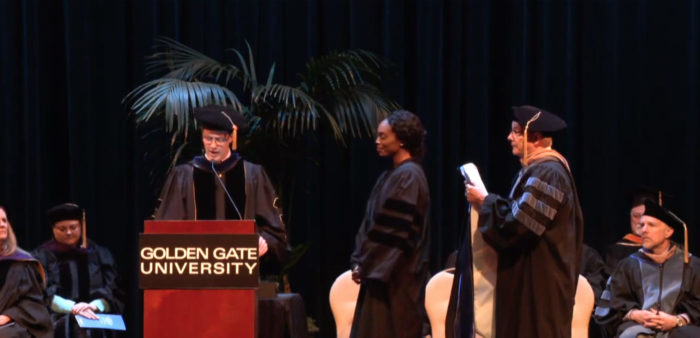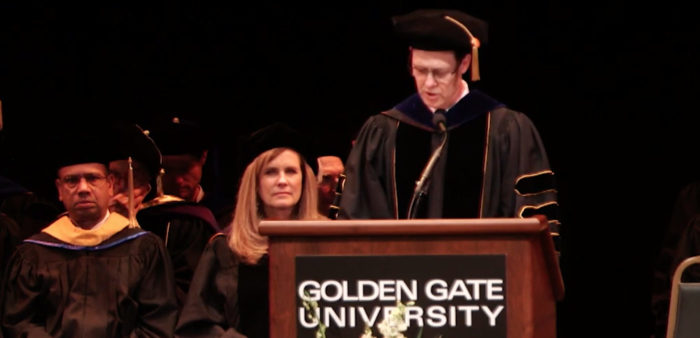
Law Alum Drives Transformative Social Change
Law grad Gregory Hodge is a community leader, activist, and organizational development consultant who wears many hats. His through line is servant leadership and advocating for the African-American community.
Gregory Hodge, JD ’85, always knew that he wanted to serve others.
His childhood in Pine Bluff, Arkansas straddled the eras of Jim Crow and desegregation. Throughout, he watched his parents, both public school teachers, serve others in everything they did.
“Straight out of college, I chose GGU because the law school trained public interest lawyers. My interest was social justice issues, particularly for African-American communities. The notion of what can I do to serve my community was always there,” explained Greg.
GGU School of Law
Greg benefited from the strong trial practice program which expertly prepared him to try cases. His entering class included diverse second-career students of different ages and racial backgrounds. The richness of those relationships with professors and classmates have benefited him throughout his career.
Since GGU, Greg has worked as an attorney, nonprofit administrator, school board president, community leader, minister, musician, strategist, facilitator and coach, to name a few of his roles. Greg opened a private law practice and after practicing civil litigation for several years, woke up one morning and realized he wanted to change direction.
“My career arc was less than linear,” he joked. “Some people pick a school, a job, a spouse. I’m definitely not that person. The through line for me was servant leadership, which I got from my parents.”
From there, Greg’s career led him to roles that allowed him to directly advocate for the Black community.
“Lots of folks didn’t have the privilege to go to law school right out of college. I asked myself, am I using this opportunity in a way that the community that raised me would recognize?” reflected Greg.
Racial Equity Advocacy and Activism
Today, Greg’s work focuses around two areas: the conditions and aspirations of boys of color, and consulting around making racial equity actionable in organizations. He’s the executive director of the Executive Alliance for Boys and Men of Color and the chief network officer of the Brotherhood of Elders Network. As an organizational development consultant with Khepera Consulting, Greg works with groups including nonprofits, foundations, and public school districts. His consulting takes him around the country to facilitate racial equity workshops and coaching to support local communities grappling with these issues. In all of his work, his goal is to spark transformative change.
“Right now I work with a lot of people all over the country—black, brown, white, otherwise—and I really feel like I was well prepared for what I’m doing now because of my law school background and practicing law the way I did,” said Greg.
Greg considers facilitation to be his primary skill.
“From a facilitative place, I help people have the conversations they need to have,” explained Greg. “If people can have hard conversations without feeling threatened, without feeling what they are saying is not valuable is what I try to do. People invite me into difficult rooms to have difficult conversations and there’s something I’ve learned over the years about how to create those possibilities for transformation.”
This past year, Greg has been asked to facilitate a conversation with the African-American community about the community response to COVID-19, and also works with leaders around messaging social distancing and vaccines in ways that support people of color to make informed decisions. This work is especially important in the wake of George Floyd’s death and the civil unrest sparked by racial inequities.
Black Lives Matter
It’s extraordinary,” said Greg, “the way the country has now had to face some of this. There’s a part of us as a country that hasn’t come to terms with the 300 years of slavery and what happened to the African-American community.”
Greg believes that Black History Month affords an important opportunity to go deeper into people’s stories and learn something new that colors more texture into the African-American experience.
“I think Black History Month is really important in that way, but I would want my new grandchild to not believe that February is the only month in the year when she’s supposed to learn about her history,” said Greg. “I want to impart that she’s supposed to know her history and the history of Indigenous Peoples, the Latinx community, the history of the Irish and Italians, the history of everybody as much as you can in the country to understand where the economic disparity and mistrust began.”






